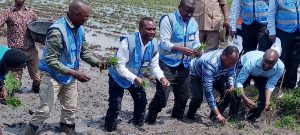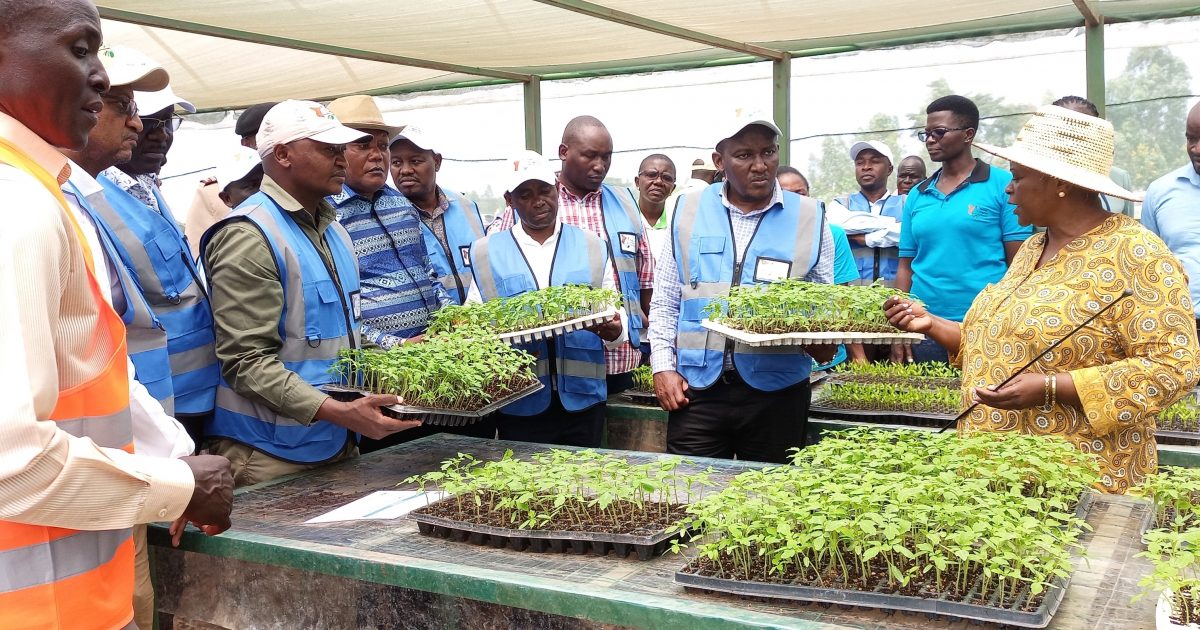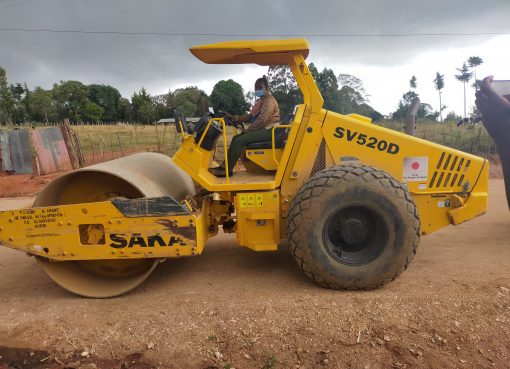The first phase of the Sh3.8 billion Lower Nzoia Irrigation Project will be complete by the end of September this year.
Speaking to the press after an inspection tour of the project in Bunyala Sub County Monday, Irrigation Principal Secretary Ephantus Kimotho said that the project is expected to benefit 12,600 farmers from Busia and Siaya counties.
Kimotho explained that the area has been designed in such a way that water flows through gravity for faster irrigation so that farmers can plant rice for two seasons per year.
At the same time, the PS said that the National Irrigation Authority has also engaged an agronomist who has adopted a new rice variety that can yield 4 tonnes per acre; hence, farmers are likely to harvest more compared to the traditional varieties.
Budalangi MP Raphael Wanjala thanked the government for addressing factors that have delayed the project over the years.
“This project is very important to the country because maize has now become very expensive, forcing Kenyans to engage in anti-government protests,” he said.

Siaya County CEC Member for Agriculture, Joseph Ogutu, expressed Governor James Orengo’s commitment to supporting Agriculture and food security.
Ogutu added that the County Government of Siaya will support farmers through capacity building and encourage them to form cooperatives.
Busia County Secretary Elijah Mwaro said that Governor Dr. Paul Otuoma has been advocating for inland irrigation across the county.
Mwaro added that Otuoma has been engaging the state and other agencies, expressing confidence that completion of the project will increase the County’s food security.
The chairman of Magombe Rice Irrigation Scheme, Christopher Obuya, said that farmers are eager to have water through gravity because the use of pumps to irrigate their farms has proved expensive.
“If we get gravity water, we will double our production,” he said, adding that they are currently doing one planting season per year.
Obuya added that they are also planning to have a rice mill so that they can practise value addition so that farmers can earn more money.
The project, which is funded by the World Bank and IDA at 70 percent and 30 percent by the Kenyan government, commenced in 2018.
However, it has suffered delays due to challenges in providing compensation to the affected local residents.
By Salome Alwanda





